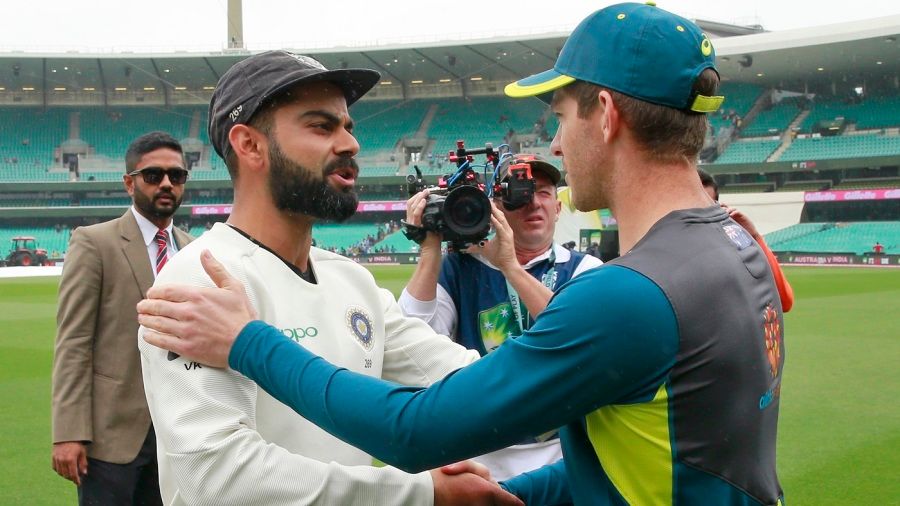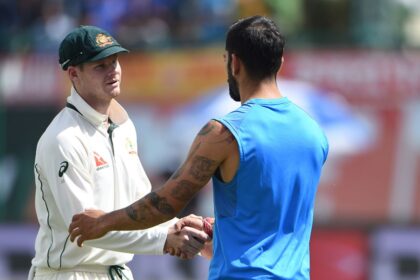Australia and India: An Epic Duel in Times of Covid-19
In a year marked by the Covid-19 pandemic, Australia and India prepare to face each other on the same stage where they began their previous encounter in 2018: the Adelaide Oval. The presence of the iconic scoreboard and the imposing Moreton Bay trees create an atmosphere of continuity, a hallmark of test cricket, which will serve as a backdrop for the teams led by Tim Paine and Virat Kohli in the first day/night Test for India away from home. This clash between two of cricket’s most powerful nations promises to be memorable, especially considering the challenges they have faced since they began competing regularly two decades ago. The series itself is an achievement, given the current global context. Since 1999, Australia and India have contested 12 Test series, the same number that Australia has played against England in the same period. Uncertainty about the series taking place was present during the difficult months of March, April and May, when the world of sport almost completely stopped. Cricket Australia (CA) has expressed gratitude that India’s administrators and players did not raise significant issues regarding the tour. The biggest challenges for CA’s interim chief executive Nick Hockley and chairman Earl Eddings centered on finding an entry point for the charter plane carrying the visiting team. Initial plans to land in Perth were moved to Adelaide and then to Brisbane, before Sydney, Canberra, the New South Wales government, and the SCG Trust finally took the lead. Even after the arrival of the Indians, there was a possibility that a Covid outbreak in Adelaide would disrupt the series. For a long time, Adelaide Oval was going to host at least one, and possibly two, tests. Adelaide Oval curator Damian Hough, who has managed rock concerts and football match changes, has prepared a test pitch with a Christmas event instead of Sheffield Shield matches as preparation.Hough highlighted that the practice sessions in the center of the field are a competitive advantage for the Australian team. Tim Paine emphasized the importance of having trained in the center of the Adelaide Oval field, which he considered a significant advantage for his team. Kohli’s adaptation, who did not participate in the practice match at the SCG, will be crucial for the result in Adelaide. Furthermore, this will be Kohli’s only test match in the series, as Ajinkya Rahane will take over the captaincy in the remaining three matches. Australians, with players like Pat Cummins, Josh Hazlewood, Mitchell Starc, and Nathan Lyon, have succeeded in dismissing Kohli early in the last two series. However, Kohli has shown that he can cause damage even to the most formidable attack.“One thing we’ve learned with Covid is to be more in the present,” Hough said. “We like to plan months in advance. We still had plans, but we had to live in the moment a little more.”
Damian Hough
Paine also pointed out that the Australian team has plans to counter Kohli, and that they have various options in their attack. The discussion of tactics and plans on the eve of the series is a relief from the Covid protocols, border restrictions and financial impacts of the year. Paine, who values his cricket career more than most, does not feel “bubble fatigue”.“Everyone has big plans to get the best players out, don’t they? But that’s why they’re the best, they can adapt, they can change with what you’re doing, and Virat is certainly one of the best players, if not the best player in the world,” Paine said.
Tim Paine
The frequency of encounters between India and Australia in recent years has generated some fatigue, but the events of 2020 have ensured that this new chapter is as vibrant as any sporting competition, at a time when many around the world remain confined by the pandemic.“Absolutely not. I love it, to be honest,” Paine said. “I don’t think this hub has been as strict as the IPL or the one in England. I’m sleeping really well; my kids are at home, which is good in a way, but I certainly miss them. But I sleep better here and feel fresher here than at home, so life in the hub might make me play longer, if anything.”
Tim Paine









